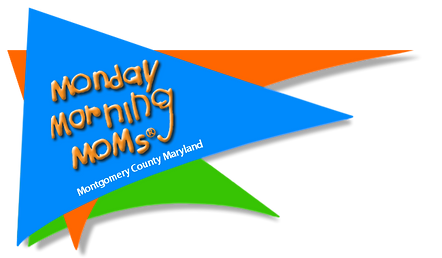Baby development: How games and songs boost her brain!
- Feb 6, 2024
- 3 min read
Games, rhymes and songs are about more than just passing the time—they're key to your baby's development. #BabyBrainBooster #BabyDevelopment #BenefitsofBabySongsandGames #MondayMorningMomsChildCare

It may feel like you’re just whiling away the hours when you’re cooing, playing with toes or singing songs to your baby. But Kimberly Bezaire, an early childhood education professor at Toronto’s George Brown College who specializes in play and literacy, says songs and games help babies reach important milestones, laying the groundwork for skills they’re going to use for the rest of their lives. Here’s the connection between play and development.
1. Joint attention Bezaire says joint attention, or the ability to share focus with another person on a thing or activity, is the most important social milestone for your baby to develop. Simple things like shaking a rattle encourage your young baby to focus on an object, and a game of peekaboo gets him to make eye contact with you.
When you point to pictures in books or at items around your house that your baby is interested in, you can expect her to look back at you for a sign of reassurance or approval. This back-and-forth action and reaction with you and others creates and reinforces curiosity and problem solving. These early interactions plant the seed for good communication skills later in life.
2. Memory When you’re clapping and singing songs, your little one is developing what Bezaire calls “symbolic thought,” by creating images in her mind and learning to remember upcoming sounds. “The baby experiences the pattern and begins to anticipate what comes next. For example, in ‘(How Much Is) That Doggie in the Window?,’ they begin to expect when you say, ‘Woof! Woof!’”
Bezaire says repetition and rhythm help the brain with pattern recognition and language development, skills kids will need when they’re learning to read. Pattern recognition also helps children learn daily routines, like when to put dishes in the sink or brush their teeth.
3. Spatial relationships Ever wonder why your baby loves going to town on your Tupperware drawer? “They love to put things inside of things,” says Bezaire. Placing objects into containers and dumping them out again helps babies practice skills like spatial awareness, while also exploring textures and developing an understanding of cause and effect.
She recommends giving your older baby things like plastic bottles, materials of different textures, plastic pot scrubbers and nesting cups, and modeling what he could do with them, like placing a small cup into a large one. “It’s not about babies getting it right—it’s about trial and error,” says Bezaire.
4. Motor planning If your baby can put her thumb in her mouth, she’s already started learning the skill of motor planning. But the baby’s ability to think about what she wants her body to do, plan it out and then execute it gets more complicated as she starts to crawl, climb stairs and walk. That’s why she spends so much time pulling up on furniture and trying to get around your house.
Bezaire suggests putting out pillows, cardboard boxes and piles of towels for your baby to navigate. “When babies are starting to crawl, they love to manoeuvre in and out of things.” As they get older, games like “Head, Shoulders, Knees and Toes” are great for practicing hand-eye coordination and imitation. These early motor-planning skills will be useful when she’s scaling the play structure in the schoolyard.
5. Forming words Babies learn to form words by watching us speak, says Bezaire. “Babies need to see your mouth when they hear the words.” Singing songs like “The Wheels on the Bus” and playing games such as pat-a-cake encourage your baby to look at you and observe the movements your mouth is making.
Bezaire recommends talking to your baby about what you’re doing with him, whether you’re eating breakfast or cleaning up toys, and incorporating tons of songs and descriptive words into your daily routine.
Did you know? While talking about what you’re doing is important for your baby’s language development (for example: “I’m pouring cereal into the bowl now”) it doesn’t have to be constant. Bezaire suggests doing it during routine activities, like diaper changing, so your baby can begin to recognize word patterns, or after naptime, when her mind is refreshed. Keep it in context: talking about the cereal bowl at the park won’t make sense to your babe.
Article courtesy of TodaysParent.com https://tinyurl.com/4v5wyn7k
No copyright is claimed in this article and is posted under fair use principles in U.S. copyright laws. If you believe material has been used in an unauthorized manner, please contact us via email.




Comments